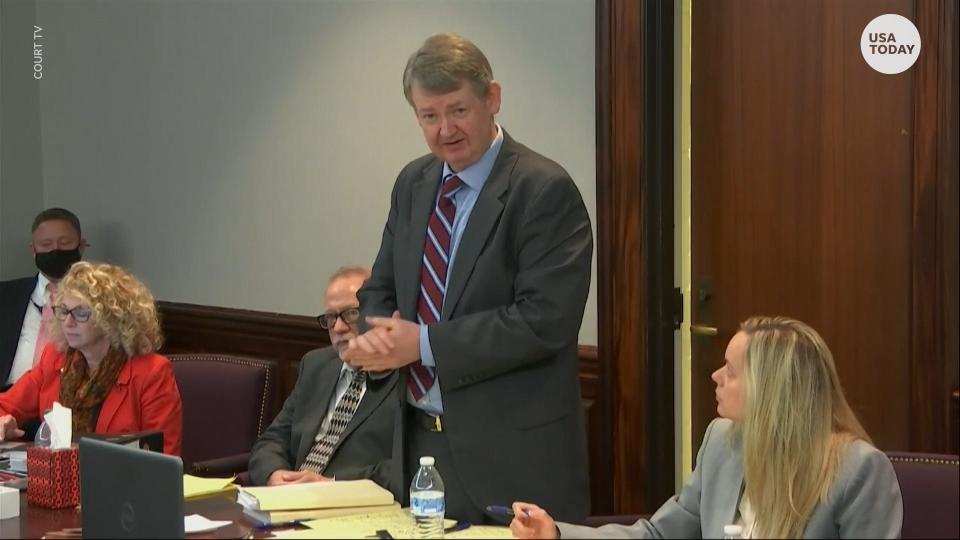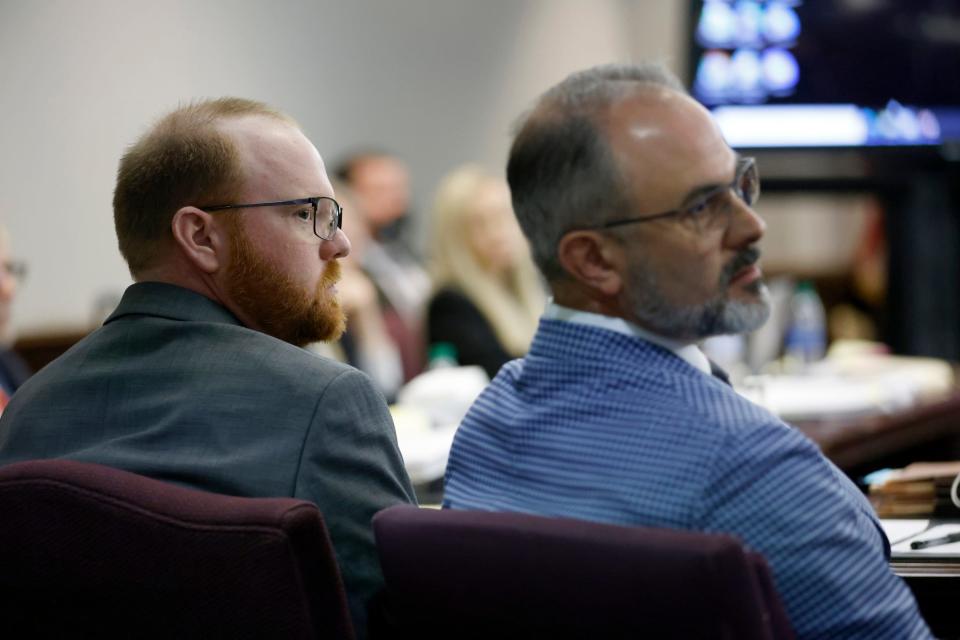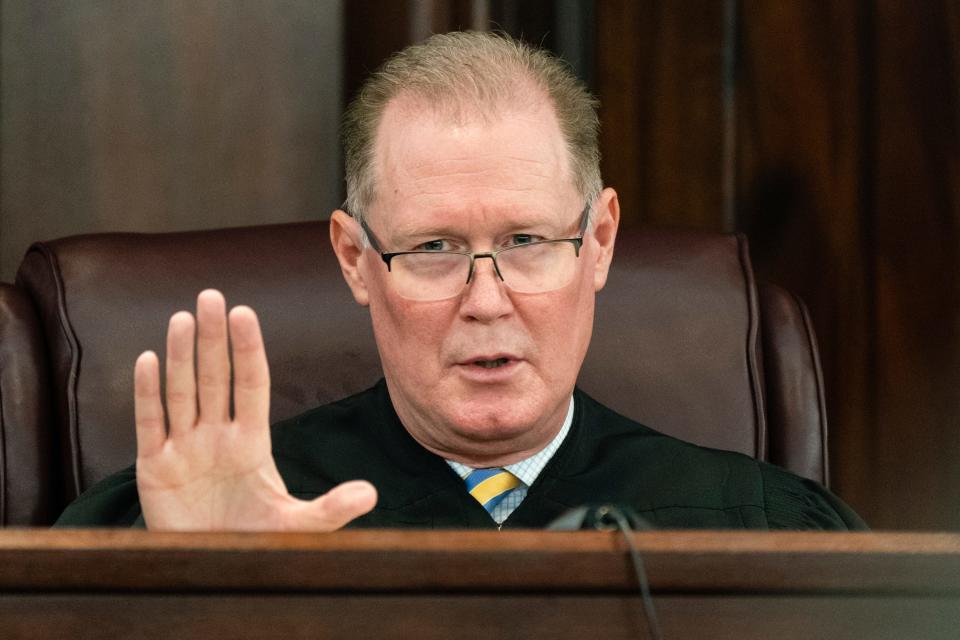Behavior of attorney representing man accused of killing Arbery shows systemic racism in court
While the alleged killers of Ahmaud Arbery force their case to trial, one of their attorneys is propagating in the courtroom the systemic injustice that led to Arbery’s murder.
Kevin Gough represents William Bryan, one of three men who chased down and killed the unarmed Arbery as he jogged through the residential neighborhood of Brunswick, Georgia. Bryan filmed the fatal attack on Arbery.
Arbery’s death spurred protests, cast the spotlight once again on the daily lethal threats faced by people of color and inspired legal change when the governor of Georgia introduced a bill to reform Georgia’s citizen arrest law under which Arbery’s alleged killers claimed they were acting.

Active intimidation
Gough's actions have had the effect of a campaign of intimidation against African Americans throughout the trial. He helped cause the removal of all but one Black potential juror even though Brunswick is majority Black, causing the trial judge to comment that “there appears to be intentional discrimination." Gough complained there are not enough white “Bubbas or Joe Six Packs" on the jury. He has attempted to control the Arbery family’s actions by restricting their unsupervised access to the media, suggesting the family should be issued a "rebuke" for speaking publicly and claiming national civil rights leaders supporting the family could be subject to “sanction.”
He moved to bar Black pastors from the courtroom, claiming they intend to intimidate the jury, although he cites not a single example of any minister causing any disruption during the trial. Gough asserted in court, “We don’t want any more Black pastors coming in here.” He compared Black ministers to men in “white masks."

Later, instead of taking responsibility for his incendiary words, he sought to cast blame on his many critics, stating that he apologized to those who were “inadvertently offended.”
His motion Monday to record citizens appearing in the court gallery who are simply supporting the victim’s family doubles down on his previous alarming courtroom statements, which a co-defendant’s lawyer described as “asinine" and the judge called “reprehensible."
Attacking a cornerstone
There are at least three manifest problems with the defense lawyer’s public statements. First, by constitutional design, every trial court is the people’s court. No member of the public may be excluded from watching our government in action.
Jeffrey Abramson and Dennis Aftergut: Arbery, 'Unite the Right,' Rittenhouse cases show difficulty of finding impartial jurors
By contrast, attorneys did not object to the live global media coverage of the trial, which has the greatest potential to impact a jury susceptible to intimidation, as the defense attorney suggested. Nor did anyone object to white pastors appearing in the courtroom.
For centuries, in contradiction of the soaring words of the Declaration of Independence, Southern localities barred African-Americans from participating in public life as voters, jurors and elected officials. A lawyer’s attempts to terminate trial observance by “high-profile members of the African-American community," whom he could not even correctly identify, suggests an intent to perpetuate the ugly stereotype that every Black person, whether an unarmed jogger or a man of the cloth, is a threat to civil order.

Reckless words remind people of color that they are daily unwelcome in public life.
Second, Black pastors have long served as the conscience of the community. In his “Letter from a Birmingham Jail,” Martin Luther King Jr. responded to the very same criticism of an attempt to influence local action by invoking the prophet’s call: “I am in Birmingham because injustice is here...Injustice anywhere is a threat to justice everywhere.”
Throughout the history of the South, white supremacists targeted the Black church by bombing children in Sunday school, shooting people en masse in church and burning down churches.
Adam Van Brimmer: The Arbery murder trial needs to stay in the small Georgia town living with the tragedy
Yet the Black church has remained the backbone of the African American community, offering strength and support when the government, law enforcement and the local citizenry failed. To attack Black ministers is to attack a cornerstone of life in America.
Third, a lawyer’s continual refusal to abide by standards of good faith, fairness towards opponents and respect for the public, demeans the entire profession. For anyone to victimize again a grieving victim’s family, just as the victim was hunted, assaulted andkilled by Confederate flag-bearing suspects, is aggression beyond reckoning.
Such behavior may be in violation of professional ethics, the duty of an attorney as an officer of the court and the rules of the state bar through which he or she is licensed. Justice for all is a core value of the profession. Any lawyer who disregards fundamental values should be sanctioned – and such discipline should be a warning to every lawyer in America that zealous advocacy is not a license for unbridled racial harassment.
Rachel K. Paulose is a former U.S. attorney for Minnesota and a professor at the University of St. Thomas School of Law.
You can read diverse opinions from our Board of Contributors and other writers on the Opinion front page, on Twitter @usatodayopinion and in our daily Opinion newsletter. To respond to a column, submit a comment to letters@usatoday.com.
This article originally appeared on USA TODAY: Ahmaud Arbery death: Systemic racism on display in trial


